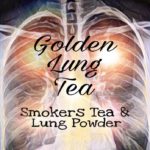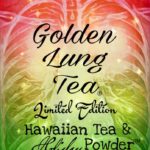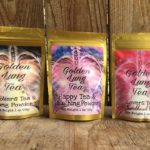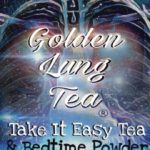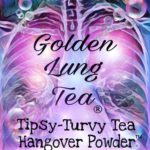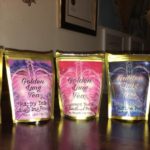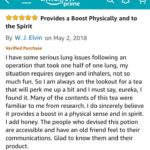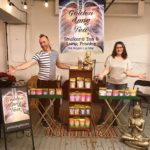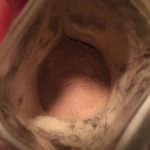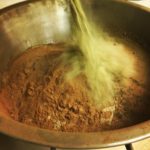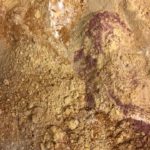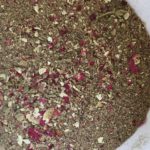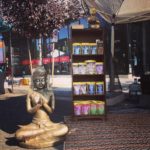Description
Our prices start at $26.
We sell powdered tea. Instant tea with complex recipes to address different parts of the body.
Our Golden Lung Tea’s ‘Smokers Tea & Lung Powder’ is a tea powder designed with 11 natural herbs that have many favorable characteristics.
Eucalyptus ( Eucalyptus globulus)
Native to Australia, Aborigines, Germans, and Americans have all used the refreshing aroma of eucalyptus to promote respiratory health and soothe throat irritation. Eucalyptus is a common ingredient in cough lozenges and syrups and its effectiveness is due to a compound called cineole. Cineole has numerous benefits — it’s an expectorant, can ease a cough, fights congestion, and soothes irritated sinus passages. As an added bonus, because eucalyptus contains antioxidants, it supports the immune system during a cold or other illness.
Lungwort (Pulmonaria)
Lungwort is a flowering rhizomatous that actually resembles lung tissue in appearance. As early as the 1600’s, lungwort has been used to promote lung and respiratory health and clear congestion. Lungwort also contains compounds that are powerfully effective against harmful organisms that affect respiratory conditions. In the times of sympathetic magic, the spotted oval leaves of Pulmonaria officinalis were thought to symbolize diseased, ulcerated lungs, and so were used to treat pulmonary infections.
Oregano (Origanum vulgare)
Although oregano contains the vitamins and nutrients required by the immune system, its primary benefits are owed to its carvacrol and rosmarinic acid content. Both compounds are natural decongestants and histamine reducers that have direct, positive benefits on the respiratory tract and nasal passage airflow.
Plantain Leaf (Plantago)
The plantain leaf has been used for hundreds of years to ease cough and soothe irritated mucous membranes. Clinical trials have found it favorable against cough, cold, and lung irritation. Plantain leaf has an added bonus in that it may help relieve a dry cough by spawning mucus production in the lungs.
Elecampane (Inula helenium)
The Greeks, Romans, Chinese, and even Indian Ayurvedic medicine have cited elecampane for respiratory support and, since the 1800’s, lozenges and cough drops have been produced from elecampane root. Elecampane has a relaxing effect on smooth tracheal muscles. There are two active compounds in elecampane root that provide the beneficial effect — inulin, which soothes bronchial passage, and alantolactone, an expectorant with antitussive action. A widespread plant species in the sunflower family also used for asthma.
Lobelia (Lobelia erinus)
Lobelia, by some accounts, is thought to be one of the most valuable herbal remedies in existence. Lobelia contains an alkaloid known as lobeline, which thins mucus, breaks up congestion. Additionally, lobelia stimulates the adrenal glands to release epinephrine, in effect, this relaxes the airways and allows for easier breathing. Also, because lobelia helps to relax smooth muscles, it is included in many cough and cold remedies. It has even been known to be given to horses for better breathing.
Chaparral (Larrea tridentata)
Chaparral, a plant native to the southwest and nearly 12,000 years old, has been appreciated by the Native Americans for lung detoxification and respiratory support. Chaparral contains powerful antioxidants that resist irritation and NDGA which is known to fight histamine response. Chaparral is also an herb that fights harmful organisms. The benefits of chaparral are most available in a tincture extraction but chaparral in tea may support respiratory problems by encouraging an expectorant action to clear airways of mucus.
Peppermint (Mentha balsamea Willd)
Peppermint, and peppermint oil, contains menthol — a soothing ingredient known to relax the smooth muscles of the respiratory tract and promote breathing. Paired with the antihistamine effect of peppermint, menthol is a fantastic decongestant. Many people use therapeutic chest balms and other inhalants that contain menthol to help break up congestion. Additionally, peppermint is an antioxidant and fights harmful organisms.
Osha Root (Ligusticum porteri)
Osha is an herb native to the Rocky Mountain area capable of growing up to 5,000 feet deep beneath the ground and has been historically used by the Native Americans for respiratory support. The roots of the plant contain camphor and other compounds which make it one of the best lung-support herbs in America. One of the main benefits of osha root is that it helps increase circulation to the lungs, which makes it easier to take deep breaths. Also… when seasonal sensitivities flare up your sinuses, osha root, which is not an actual antihistamine, does produce a similar effect and may help calm respiratory irritation.
Skull Cap (Scutellaria)
Skullcap is a comforting herb, traditionally used to alleviate nervous tension and exhaustion. It is used to promote emotional well-being and relaxation during times of occasional distress and assist in breathing.
Cordyceps (Ophiocordyceps sinensis)
Cordyceps is a fungus that lives on certain caterpillars in the high mountain regions of China. Supplement makers are able to get enough of the product to sell because cordyceps will reproduce in the laboratory on hosts such as rice or rye. Cordyceps is used to treat coughs, chronic bronchitis and respiratory disorders. It is also used for strengthening the immune system, improving athletic performance, reducing the effects of aging, promoting longer life.
Location
Contact
- E-mail answers@goldenlungtea.com
- Website http://www.goldenlungtea.com
- Phone 503-732-0382
- Address SE Portland, OR.

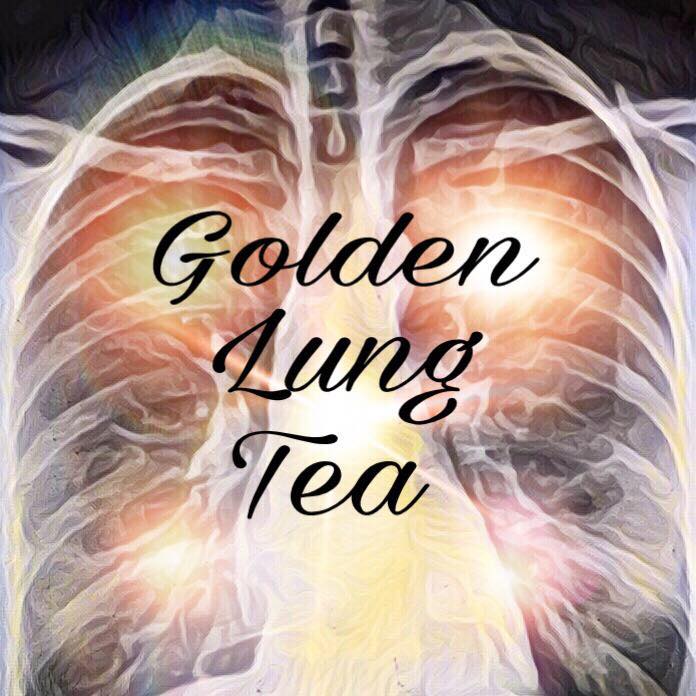 Golden Lung Tea (Portland, OR)
Golden Lung Tea (Portland, OR) 